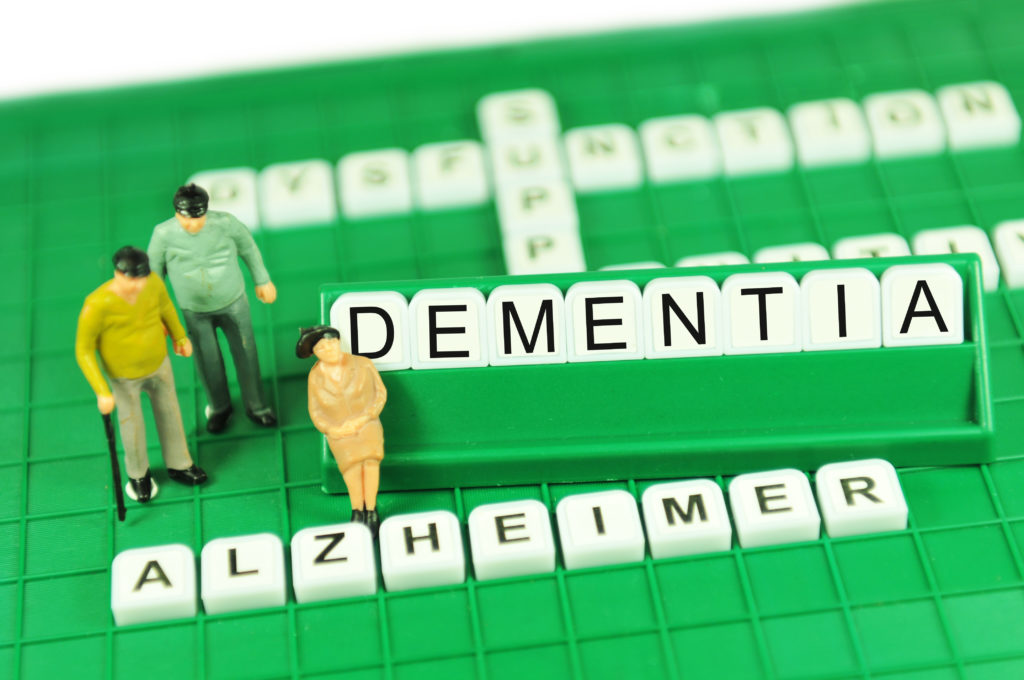
Program for Dementia
Dementia is a term used to describe a number of symptoms that affect a person’s mental capability to function normally in everyday life. Alzheimer’s is the most common form of the disease that causes age-related cognitive decline, and currently affects about 5.4 million Americans and 30 million people globally. It has recently come to the fore that women are at the focus point of the Alzheimer’s epidemic, with 65% of patients and 60% of caregivers being women. In fact, women today are at a greater risk of developing Alzheimer’s Disease than breast cancer.
In order to label a person as having dementia, at least two of the following core mental functions needs to be notably impaired. They are: memory, communication and language, ability to focus, visual perception and reasoning. The disease is usually progressive – starting out slowly and mildly, and progressing to the point where a person is unable to function on a daily basis; i.e. they are unable to remember directions, to take care of personal hygiene or perform simple everyday tasks that should be relatively easy to do, such as paying bills, planning and preparing meals.
The center of learning and memory in the brain is called the hippocampus and brain cells in this area are the first to be damaged. This explains why memory loss is one of the earliest symptoms of Alzheimer’s Disease.
The treatment for dementia depends on the cause, but as of now there is no cure for Alzheimer’s, only medication that can slow down the disease. Age and genetics cannot be changed, but research is being carried out to determine the effect of brain health on dementia. A great deal of emphasis is being focused on the risk reduction and prevention through cardiovascular health, diet and exercise routine. Earlier studies have shown that elderly people who lead healthy lifestyles, including a healthy diet and regular exercise, are less prone to symptoms of dementia and have sharper minds.
The brain is nourished by one of the richest blood vessel networks in the body and damage caused to any blood vessels in the body directly affects the blood vessels in the brain, starving the brain cells of food and oxygen. Changes in the blood vessels of the brain are linked to vascular dementia and Alzheimer’s Disease. It is therefore advantageous to adopt the same health strategies to maintain brain health, as you do to maintain cardiovascular health.
The following tips are important to help prevent and treat cognitive and memory decline:
- Eat a low glycemic diet – Eat plenty of fresh fruits and vegetables, especially green leafy vegetables and superfoods that contain antioxidants and vitamins such as berries. Eliminate refined sugars, simple carbohydrates and processed foods, as high blood sugar levels increases inflammation in the brain and raises your risk of developing dementia.
- Adopt the MIND Diet – The MIND diet is a combination of the Mediterranean and the Dash (Dietary Approaches to Stop Hypertension) diet. Recent studies have shown that the MIND diet reduces the risk of Alzheimer’s by as much as 53%, if strictly adhered to. The diet consists of the following core brain-health ingredients; green leafy and other vegetables, nuts, seeds, whole grains, fish, poultry, berries, olive oil and wine. Red meat, butter / margarine, cheese, pastries and fast or fried foods are forbidden.
- Fast for 12 hours – Fasting between dinner and breakfast, including 3 hours prior to bedtime is recommended in the prevention of dementia .
- Optimize Sleep time – Between 7-8 hours of uninterrupted sleep per night is recommended. Research suggests that disrupted sleep is not only a symptom of Alzheimer’s, but could possibly be a risk factor in developing the disease.
- Exercise – Exercising regularly for about 30 minutes per day 4-6 times per week may help lower the risk of certain types of dementia. Research suggests that exercise increases blood flow and oxygen to the brain, thereby benefiting the brain cells.
- Reduce Stress – Chronic stress has been known to cause shrinkage of the hippocampus (memory section) of the brain inhibiting nerve cell growth and possibly leading to the development of Alzheimer’s. Breathing exercises, yoga, meditation, listening to music and keeping your sense of humor are some ideas on how to reduce stress levels.
- Balance Thyroid and Hormone Levels – Hormone replacement therapy is common with advanced aging and normalizing thyroid levels including cortisol levels, positively affects brain health.
- Maintain Healthy Microbiome (Gut Flora) – Brain health is related to a healthy gut. Take prebiotics and probiotics if necessary, and eliminate any possible antagonists such as parasites.
- Take Vitamin Supplements – NeuroSpark™ has been formulated with ingredients that have been scientifically proven to help enhance memory and prevent memory loss. This supplement helps boost mental clarity, learning abilities, memory, intelligence and improve your mood. In addition, omega-3, vitamins B6, B12, D and folate also support brain health.
- Get Rid of Mercury – This can be done through a medical detoxification program such as chelation.
- Challenge your Mind – Mental stimulation, including learning to play an instrument, learning a new language or trying something new that you have always wanted to do, plays a large role in decreasing the risk of developing Alzheimer’s. It is important to keep your mind active and focused on activities that are spiritual, meaningful and fulfilling, such as self development programs, doing charity work and helping others in your community. Other examples of mental stimulation are learning a new game such as bridge or scrabble, doing crossword puzzles and traveling to new places.
For more information on the MIND diet, improving brain health and reducing your risk of developing dementia, please contact our clinic.